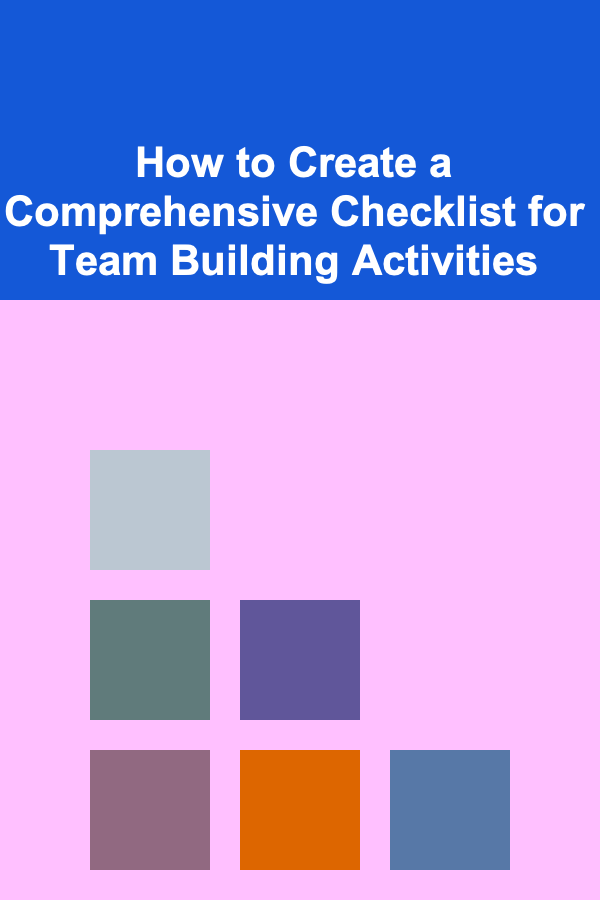
How to Network Effectively for Career Growth
ebook include PDF & Audio bundle (Micro Guide)
$12.99$10.99
Limited Time Offer! Order within the next:

Introduction: Networking as a Career Accelerator
In today's rapidly evolving professional landscape, technical skills and formal education are undeniably important. However, they are often insufficient for achieving significant career growth. Networking, the art and science of building and nurturing professional relationships, has emerged as a critical differentiator, a potent catalyst that can accelerate your career trajectory. It's not just about collecting business cards; it's about fostering genuine connections, building trust, and cultivating a support system that can open doors to opportunities you might never have found otherwise.
This comprehensive guide delves into the multifaceted aspects of effective networking, providing actionable strategies and insights to help you build a robust network, leverage it strategically, and ultimately, achieve your career aspirations. We'll explore the mindset required for successful networking, the diverse platforms available, the techniques for building authentic connections, and the crucial importance of nurturing relationships over the long term.
This is not a quick-fix solution. Effective networking is a continuous process, an investment in your professional future that requires consistent effort, genuine interest, and a commitment to building mutually beneficial relationships. By understanding the principles and applying the techniques outlined in this guide, you can transform your approach to networking and unlock its potential to propel your career to new heights.
The Mindset Shift: From Transactional to Relational Networking
Many people approach networking with a transactional mindset, viewing it as a means to an immediate end -- finding a job, securing a client, or gaining a quick favor. This approach is often transparent and ultimately ineffective. Effective networking requires a fundamental shift in mindset, moving from a transactional approach to a relational one. This means focusing on building genuine connections based on mutual respect, shared interests, and a willingness to help others.
Key Principles of a Relational Mindset:
- Focus on Giving Before Receiving: The cornerstone of relational networking is the principle of reciprocity. Instead of focusing on what you can gain from a connection, consider what you can offer -- your expertise, your connections, your support. Helping others without expecting immediate returns builds goodwill and strengthens relationships.
- Be Genuinely Interested: People can sense when you're being insincere. Take a genuine interest in learning about others -- their backgrounds, their goals, their challenges. Ask thoughtful questions and actively listen to their responses. This demonstrates respect and fosters a deeper connection.
- Embrace Authenticity: Don't try to be someone you're not. Authenticity is key to building trust and establishing lasting relationships. Be yourself, share your passions, and let your personality shine through.
- Practice Active Listening: Listening is more than just hearing words; it's about understanding the speaker's perspective, acknowledging their emotions, and responding thoughtfully. Active listening shows that you value their input and are genuinely interested in what they have to say.
- Adopt a Long-Term Perspective: Networking is not a sprint; it's a marathon. Building strong relationships takes time and effort. Focus on nurturing your connections over the long term, even if there's no immediate benefit.
Shifting to a relational mindset requires conscious effort, but the rewards are significant. By focusing on building genuine connections, you'll not only expand your network but also create a valuable support system that can benefit you throughout your career.
Identifying Your Networking Goals and Target Audience
Before diving into networking events and online platforms, it's crucial to define your goals and identify your target audience. Networking without a clear objective is like wandering aimlessly -- you're unlikely to reach your desired destination.
Defining Your Networking Goals:
- Career Advancement: Are you seeking a promotion, a new role, or a career change? Knowing your desired career path will help you focus your networking efforts on individuals and organizations that can help you achieve your goals.
- Industry Knowledge: Are you looking to stay updated on industry trends, learn about new technologies, or gain insights from experienced professionals? Target your networking efforts towards thought leaders, industry experts, and members of professional associations.
- Skill Development: Are you seeking mentorship, guidance, or opportunities to learn new skills? Connect with individuals who possess the skills you want to develop and are willing to share their knowledge.
- Business Development: Are you looking to expand your client base, find strategic partners, or raise capital for your business? Target your networking efforts towards potential clients, investors, and collaborators.
Identifying Your Target Audience:
Once you've defined your goals, identify the individuals and organizations that can help you achieve them. Consider the following:
- Industry: Which industries are relevant to your goals?
- Role: What roles are held by individuals who can help you?
- Company: Which companies are likely to offer the opportunities you're seeking?
- Location: Where are these individuals and organizations located? (Consider both geographical location and online communities)
- Level of seniority: Do you need to connect with senior executives, peers, or junior professionals?
Creating a clear profile of your target audience will help you focus your networking efforts and make the most of your time and resources. For example, if you are looking to break into the marketing industry, you should seek out marketing professionals, attend marketing conferences, and join relevant online communities.
Choosing the Right Networking Platforms
Networking is no longer confined to physical events. The digital age has opened up a plethora of online platforms that offer diverse opportunities to connect with professionals from around the globe. The key is to choose the platforms that align with your goals and target audience.
Online Networking Platforms:
- LinkedIn: The premier professional networking platform, LinkedIn is essential for building your online presence, connecting with professionals in your industry, and participating in relevant groups. Use it to share your expertise, engage in discussions, and reach out to individuals of interest.
- Industry-Specific Online Communities: Many industries have their own online communities and forums, such as Stack Overflow for developers, Dribbble for designers, and Medium for writers. These communities offer opportunities to connect with peers, share your work, and learn from others.
- Social Media Platforms: While not solely for professional networking, platforms like Twitter and Instagram can be valuable for connecting with thought leaders, engaging in industry conversations, and showcasing your expertise. Use them strategically and maintain a professional online presence.
- Professional Associations' Online Platforms: Many professional associations have online platforms for their members to connect, share resources, and participate in discussions. Joining these associations and actively engaging in their online communities can significantly expand your network.
Offline Networking Platforms:
- Industry Conferences and Events: Attending industry conferences and events is a great way to meet new people, learn about industry trends, and expand your professional network. Prepare beforehand by researching attendees, setting goals for the event, and crafting a compelling elevator pitch.
- Workshops and Seminars: Workshops and seminars offer opportunities to learn new skills, network with like-minded individuals, and expand your knowledge base. Choose events that align with your career goals and actively participate in discussions.
- Volunteer Opportunities: Volunteering for professional organizations or community initiatives can be a great way to meet new people, give back to your community, and demonstrate your commitment to a cause.
- Informational Interviews: Requesting informational interviews with professionals in your field can provide valuable insights, build connections, and open doors to new opportunities. Prepare thoughtful questions and be respectful of their time.
A balanced approach, utilizing both online and offline platforms, will maximize your networking reach and effectiveness. Consider where your target audience spends their time and allocate your efforts accordingly. Remember to be active and engaged, not just a passive observer.
Crafting Your Personal Brand and Elevator Pitch
Your personal brand is the image you project to the world, encompassing your skills, experience, values, and personality. It's what distinguishes you from other professionals and makes you memorable. A well-defined personal brand is crucial for effective networking, as it helps you communicate your value proposition and attract the right opportunities.
Developing Your Personal Brand:
- Identify Your Strengths and Values: What are you good at? What are you passionate about? What values are important to you? Understanding your strengths and values will help you define your unique selling proposition.
- Define Your Target Audience: Who are you trying to reach? What are their needs and expectations? Tailor your personal brand to resonate with your target audience.
- Craft Your Brand Story: What's your professional journey? What experiences have shaped you? Craft a compelling narrative that showcases your skills, experience, and values.
- Maintain a Consistent Online Presence: Ensure that your online profiles (LinkedIn, Twitter, etc.) are consistent with your personal brand. Use professional photos, write compelling summaries, and share relevant content.
Crafting Your Elevator Pitch:
An elevator pitch is a concise and compelling summary of who you are, what you do, and what you offer. It's a powerful tool for introducing yourself at networking events, conferences, and even in online interactions. A good elevator pitch should be:
- Concise: No more than 30-60 seconds long.
- Clear: Easy to understand and memorable.
- Compelling: Highlights your unique selling proposition.
- Tailored: Adjusted to the specific audience and situation.
Example Elevator Pitch: "Hi, I'm [Your Name]. I'm a [Your Profession] with [Number] years of experience in [Your Industry]. I specialize in [Your Specialization] and I'm passionate about [Your Passion]. I help [Your Target Audience] to [Achieve Specific Benefit]. I'm currently looking to connect with professionals in [Industry/Area of Interest] to [Your Goal]. It's great to meet you!"
Practice your elevator pitch until it feels natural and confident. Be prepared to adapt it to different situations and audiences. A strong personal brand and a compelling elevator pitch will make a lasting impression and open doors to new opportunities.
Making the Most of Networking Events and Interactions
Attending networking events is just the first step. The real value lies in how you engage with others and make meaningful connections. Here are some tips for making the most of networking events and interactions:
Before the Event:
- Research the Event: Understand the event's purpose, target audience, and agenda.
- Set Specific Goals: What do you hope to achieve at the event? How many new connections do you want to make?
- Prepare Your Elevator Pitch: Practice your elevator pitch and tailor it to the event's audience.
- Review the Attendee List (if available): Identify individuals you want to connect with and research their backgrounds.
During the Event:
- Arrive Early: This gives you time to orient yourself and connect with other early arrivals.
- Be Approachable: Smile, make eye contact, and maintain open body language.
- Introduce Yourself Confidently: Use your elevator pitch to introduce yourself and start conversations.
- Ask Open-Ended Questions: Encourage others to talk about themselves and their interests.
- Actively Listen: Pay attention to what others are saying and ask follow-up questions.
- Find Common Ground: Look for shared interests or experiences to build rapport.
- Offer Value: Share your expertise, offer assistance, or connect them with someone else who can help.
- Collect Business Cards (or connect on LinkedIn): But don't just collect them; write a brief note on the back to remind yourself of the conversation.
- Be Respectful of Others' Time: Don't monopolize conversations. Be mindful of their body language and wrap up the conversation gracefully.
After the Event:
- Follow Up Promptly: Send a personalized message to individuals you connected with within 24-48 hours.
- Reference Your Conversation: Remind them of what you discussed and express your interest in continuing the conversation.
- Offer Value: Share a relevant article, suggest a helpful resource, or offer to connect them with someone else.
- Stay in Touch: Maintain contact over time through LinkedIn, email, or occasional phone calls.
Remember, networking is about building genuine relationships, not just collecting contacts. Focus on creating meaningful connections and offering value to others.
The Art of the Follow-Up: Nurturing Your Network
The follow-up is arguably the most crucial, and often overlooked, aspect of effective networking. Building a network is not a one-time event; it's an ongoing process of nurturing relationships over time. Consistent follow-up is essential for maintaining connections, building trust, and solidifying your network.
Strategies for Effective Follow-Up:
- Personalized Thank-You Notes: A handwritten thank-you note is a thoughtful gesture that can make a lasting impression. Use it to express your gratitude for their time and reiterate your interest in connecting.
- Email Follow-Up: Send a personalized email within 24-48 hours of meeting someone. Reference your conversation, offer value, and suggest a next step.
- LinkedIn Connection Request: Connect with new contacts on LinkedIn and personalize your connection request with a brief message.
- Share Relevant Content: Share articles, blog posts, or other resources that you think would be of interest to your contacts.
- Engage on Social Media: Like, comment on, and share your contacts' posts on LinkedIn and other social media platforms.
- Regular Check-Ins: Reach out to your contacts periodically to see how they're doing and offer your support. This could be a simple email, a phone call, or even a coffee meeting.
- Remember Important Dates: Send birthday wishes or congratulate your contacts on their achievements. This shows that you care and are paying attention.
- Offer Assistance: Be proactive in offering help to your contacts. Share your expertise, connect them with others, or offer to review their work.
Tools for Managing Your Network and Follow-Up:
- CRM Systems (e.g., HubSpot, Salesforce): CRM systems can help you manage your contacts, track your interactions, and automate follow-up tasks.
- Contact Management Apps (e.g., FullContact, Contacts+): These apps can help you organize your contacts, enrich their profiles, and manage your communications.
- Spreadsheets: A simple spreadsheet can be a valuable tool for tracking your contacts, their contact information, and your follow-up activities.
- LinkedIn Relationship Tab: LinkedIn allows you to add notes and set reminders for each connection, making follow-up easier.
The key to effective follow-up is to be genuine, consistent, and valuable. Focus on building relationships, not just collecting contacts. By nurturing your network over time, you'll create a valuable support system that can benefit you throughout your career.
Overcoming Networking Challenges and Obstacles
Networking is not always easy. You may encounter various challenges and obstacles along the way. It's important to be aware of these challenges and develop strategies for overcoming them.
Common Networking Challenges:
- Fear of Rejection: It's natural to feel apprehensive about approaching strangers, but remember that most people are open to connecting. Don't take rejection personally and keep trying.
- Introversion: Introverts may find networking events overwhelming. Prepare beforehand, focus on quality over quantity, and prioritize one-on-one conversations.
- Lack of Time: Networking requires time and effort. Prioritize your networking activities, schedule dedicated time for networking, and leverage online platforms.
- Not Knowing What to Say: Prepare your elevator pitch, research attendees beforehand, and have some conversation starters ready.
- Feeling Like an Imposter: Imposter syndrome can make you feel inadequate and hesitant to connect with others. Acknowledge your accomplishments, focus on your strengths, and remember that everyone starts somewhere.
- Difficulty Breaking into Established Groups: It can be challenging to insert yourself into conversations at networking events. Listen carefully, identify opportunities to contribute, and approach individuals individually before approaching a group.
Strategies for Overcoming Networking Challenges:
- Practice Makes Perfect: The more you network, the more comfortable you'll become.
- Start Small: Begin by networking with people you already know and gradually expand your network.
- Focus on Your Strengths: Leverage your unique skills and experiences to add value to conversations.
- Seek Out Mentors: Connect with experienced professionals who can provide guidance and support.
- Join Networking Groups: Participate in networking groups that cater to your specific interests or industry.
- Prepare for Rejection: Accept that not every connection will be successful and don't take it personally.
- Celebrate Small Wins: Acknowledge and celebrate your networking successes, no matter how small.
- Visualize Success: Imagine yourself confidently networking and achieving your goals.
Persistence and a positive attitude are key to overcoming networking challenges. Don't be discouraged by setbacks, learn from your experiences, and keep building your network.
Measuring Your Networking Success
It's important to track your networking efforts and measure your success. This will help you identify what's working, what's not, and where you need to adjust your strategy.
Key Metrics to Track:
- Number of New Connections Made: Track the number of new connections you make each week or month.
- Number of Follow-Up Emails Sent: Track the number of follow-up emails you send after networking events or interactions.
- Response Rate to Follow-Up Emails: Track the percentage of follow-up emails that receive a response.
- Number of Informational Interviews Conducted: Track the number of informational interviews you conduct with professionals in your field.
- Number of Job Referrals Received: Track the number of job referrals you receive as a result of your networking efforts.
- Number of Business Opportunities Generated: Track the number of business opportunities that arise from your networking activities.
- Changes in Your Career Trajectory: Assess whether your networking efforts are contributing to your career growth, such as promotions, new roles, or increased responsibilities.
- Qualitative Feedback: Gather feedback from your network on your personal brand, your elevator pitch, and your networking approach.
Tools for Tracking Your Networking Success:
- Spreadsheets: A simple spreadsheet can be used to track your networking activities and metrics.
- CRM Systems: CRM systems offer more sophisticated tracking and reporting capabilities.
- LinkedIn Analytics: LinkedIn provides analytics on your profile views, connection requests, and post engagement.
Regularly review your networking metrics and adjust your strategy accordingly. Focus on activities that are generating the best results and eliminate those that are not. Continuously improve your networking skills and adapt to the changing professional landscape.
Ethical Considerations in Networking
Networking should always be conducted with integrity and ethical considerations at the forefront. Building a strong network should not come at the expense of your personal values or the well-being of others.
Key Ethical Guidelines:
- Be Honest and Transparent: Represent yourself and your skills accurately. Don't exaggerate your experience or make false claims.
- Respect Confidentiality: Honor any confidentiality agreements you have with your employer or clients. Don't disclose sensitive information to your network.
- Avoid Conflicts of Interest: Disclose any potential conflicts of interest to your network. Don't use your network to gain an unfair advantage over others.
- Don't Exploit Relationships: Use your network for mutual benefit, not for personal gain at the expense of others. Don't constantly ask for favors without offering anything in return.
- Be Respectful of Others' Time: Be mindful of others' schedules and avoid wasting their time. Prepare for meetings and be punctual.
- Give Credit Where Credit is Due: Acknowledge the contributions of others and give credit to their ideas.
- Maintain Professional Boundaries: Avoid inappropriate behavior or communication that could make others uncomfortable.
- Respect Privacy: Don't share contact information or other personal details without permission.
Building a strong and ethical network will not only benefit your career but also enhance your reputation and credibility. By adhering to these guidelines, you can ensure that your networking activities are conducted with integrity and respect.
Conclusion: Networking as a Continuous Journey
Effective networking is not a one-time event, but rather a continuous journey of building and nurturing professional relationships. It requires a shift in mindset from transactional to relational networking, a clear understanding of your goals and target audience, and a commitment to ongoing effort and ethical conduct. By embracing the principles and techniques outlined in this guide, you can unlock the power of networking to accelerate your career growth and achieve your professional aspirations.
Remember to be genuine, consistent, and valuable in your interactions. Focus on building relationships, not just collecting contacts. Embrace challenges, celebrate successes, and continuously adapt to the ever-changing professional landscape. Your network is your net worth. Invest in it wisely and watch your career flourish.

Essential Skills for Legal Secretaries: Enhancing Efficiency and Effectiveness
Read More
How to Create a Comprehensive Checklist for Team Building Activities
Read More
How to Ensure Your Pet Receives Quality Care with Highland Pet Care
Read More
How to Sell Handmade Wooden Crafts on Etsy: A Comprehensive Guide
Read More
How to Stage Your Home for Minimalist Style
Read More
How to Start a YouTube Channel and Make Money from Home
Read MoreOther Products

Essential Skills for Legal Secretaries: Enhancing Efficiency and Effectiveness
Read More
How to Create a Comprehensive Checklist for Team Building Activities
Read More
How to Ensure Your Pet Receives Quality Care with Highland Pet Care
Read More
How to Sell Handmade Wooden Crafts on Etsy: A Comprehensive Guide
Read More
How to Stage Your Home for Minimalist Style
Read More